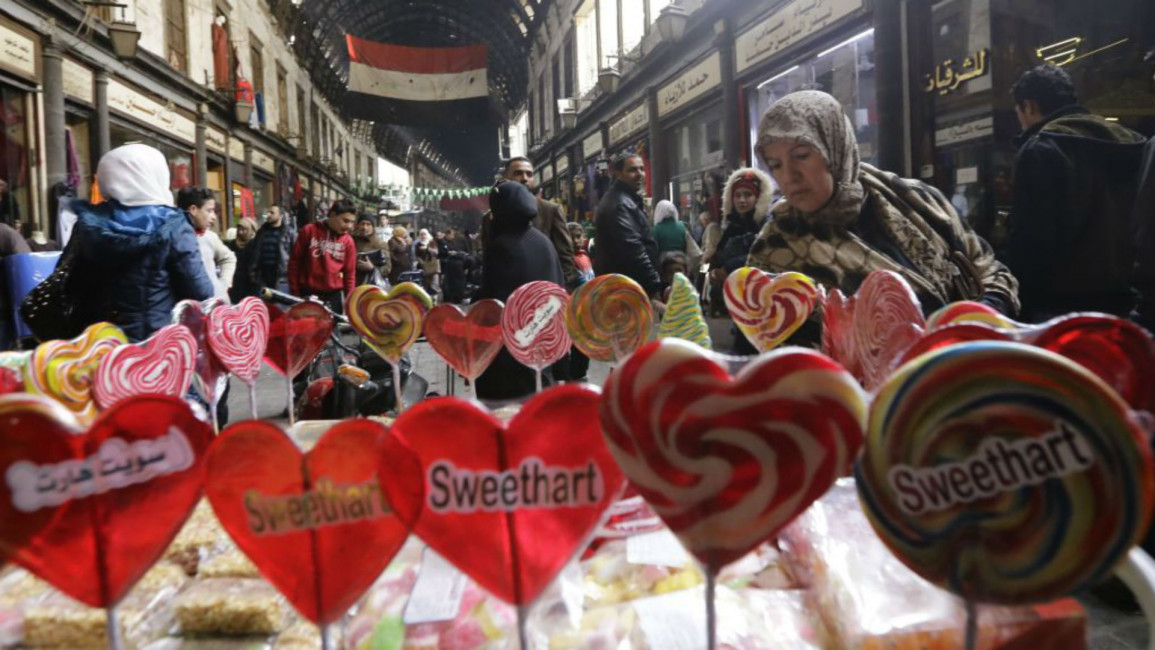
'The unexpected love objects of Dunya Noor': A Syrian love story
These are the words of Suha who has revealed to Dunya Noor that she is in fact a girl pretending to be a boy.
'Nothing is as it seems' is the theme of Rana Haddad's debut novel, 'The Unexpected Love Objects of Dunya Noor' which transverses love, youth, rebellion, hypocrisy and the absurd in 1980s and 1990s Syria.
But like all good novels, the surface themes of love and hypocrisy conceal something else; stranger and more fantastical.
The novel follows a young British-Syrian woman, Dunya Noor, who, following her heart, falls for someone she shouldn't.
Her beloved Hillal, an astronomer with a poet's soul and from a lower-middle class Sunni Muslim family in Aleppo, disappears under mysterious circumstances.
Rather than accepting his disappearance as something that is probably for the best, Dunya embarks on a journey across Syria and encounters indifference, fear and some unexpected twists.
Everything about Dunya is not meant to be.
The daughter of a Christian Latakian heart surgeon and an English mother, she is Syrian among the English and English among the Syrians, never quite belonging anywhere. She is looked on with suspicion in Latakia's elite society, and seen as alien among her English peers.
Perpetually curious, Dunya explores her curiosity for the world through her chosen profession of photography; an entirely unsuitable profession for a Latakian lady.
 |
Dunya's crime was not falling in love, it was falling in love openly |  |
Never quite understanding the social customs and norms around her, she is forced to leave Syria at 13 for refusing to declare her love for the Baath party and Hafez al-Assad.
Ten years in England elapse before she returns to Syria hand-in-hand with her lover Hillal, much to the dismay of her father who sees Hillal as being from the wrong city, religion and background.
Not long after arriving Hillal is taken into a car with black tinted windows and Dunya's journey begins.
 |
|
The novel touches on a number of areas that contribute to understanding the politics of authoritarianism in Syria. The idea of manhood in Syria is for example, constructed on the image of President of Hafez Assad, who is a cross between a tyrannical king, and watchful father, an idea that comes up time and again.
Perhaps nothing captures the filial piety and outward conformity better than the moustache craze: Dunya consistently encounters men who have grown a moustache like the president's. However, Haddad subverts the idea of this outward conformity, through the character of Suha who befriends Dunya while she is searching for her lost lover.
Suha is everything Dunya can never be; with a secondary persona as a man with a fake president-style moustache.
Nobody suspects Suha and she is able to move freely between feminine and masculine spaces. Truth has no currency in Suha's world, indeed while truth can be dangerous, it is also rather boring, and in some respects this is also the essence of post-truth.
Beneath conformity lurks a hidden anarchy. Suha embodies this, while Dunya has trouble understanding it. Dunya is an open and honest character, and her refusal to do what is expected of her is a transgression of the laws of society.
Dunya's crime was not falling in love; it was falling in love openly, thus blurring the line between public and private selves. A truly dangerous thing, as the Syrian saying goes, "Your freedoms end where others begin."
Indeed, outward conformity is encouraged early on in Syria. Dunya gets her first taste of this while at school in Latakia. Girls are made to wear military khaki uniforms to school and pledge their allegiance to Assad and Syria every morning. Every transgression from wearing the wrong colour socks to having painted nails is punished with a caning.
 |
Nobody suspects Suha and she is able to move freely between feminine and masculine spaces |  |
Signs of independent thought are snuffed out early and while the story is fictional, some of the roots of the present Syrian revolution and war are reflected in the experiences of characters like Dunya.
While Haddad's novel depicts the context of Syria's conflict, aspects of it could be happening anywhere. For this is not so much a novel about Syria, but a novel about the strangeness and difference between what is said and unsaid, what is understood and what is not.
The gaps between these two ideas open up a world of discovery for a naive explorer like Dunya, and for any reader of this new book.
Usman Butt is a multimedia television researcher, filmmaker and writer based in London. Usman read International Relations and Arabic Language at the University of Westminster and completed a Master of Arts in Palestine Studies at the University of Exeter.
Follow him on Twitter: @TheUsmanButt
Opinions expressed in this article remain those of the author and do not necessarily represent those of The New Arab, its editorial board or staff.




